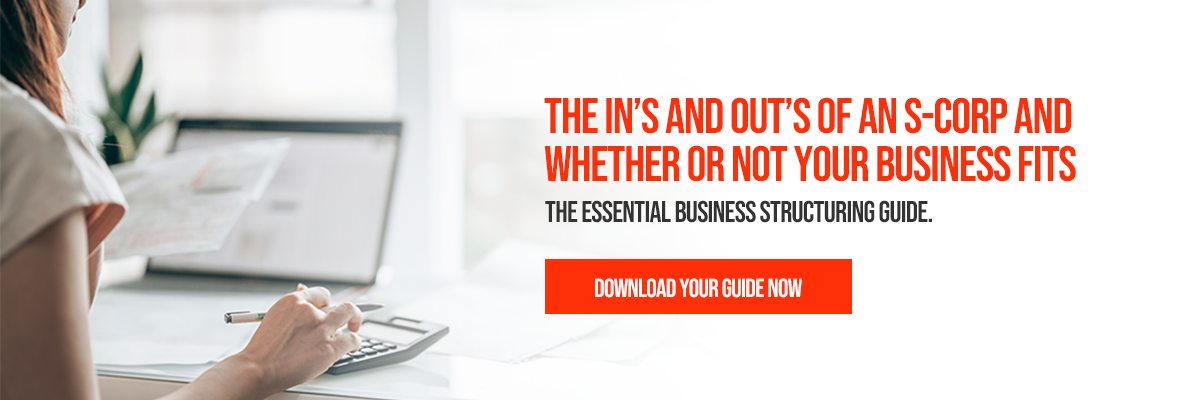As a small business owner, you have a lot on your plate. Between balancing your lengthy to-do list, your personal life, and everything else that comes up as a small business owner, you don’t have any spare time.
Adding taxes to your already extensive list of responsibilities adds to your busy schedule and stress. Trying to keep up with the ever-changing laws and regulations and ensuring you pay all of your taxes is time-consuming and at times confusing. Fines, penalties, and interest add up quickly, and an incorrect tax return can decimate your small business's cash reserves.
However, a small business tax accountant will ensure your small business remains tax compliant on the federal, state, and local levels, not to mention taking a big lift off your shoulders.
In this article, we will help you learn more about the role of a tax accountant and the reasons your small business needs one.
What Is the Role of a Small Business Tax Account?
A small business tax accountant partners with you to ensure you are tax compliant while helping analyze your finances to make valuable suggestions for your business’s growth. The right tax accountant is a worthwhile small business asset.
An accountant creates a set of financial books that details all the money matters within a small business. They also create and interpret financial reports to help owners explore areas of growth.
A tax accountant is an accountant that specializes in taxes. This can include federal, state, and local taxes as well as income tax, sales tax, and more. They help to prepare tax returns, handle payroll taxes, and track sales tax.
Common Tasks of a Tax Accountant
Tax accountants have many obligations within a small business. Here are some of their responsibilities:
Taxes
As their name suggests, the biggest undertaking of tax accountants is just that, taxes! They file quarterly payroll taxes, assist with audits, and will handle all of the preparation and filing of taxes for state, federal and local. Tax accountants specialize in tax laws, regulations, and codes to ensure they keep up with the constant changes.
Educational Requirements
Tax accountants are typically certified public accountants (CPAs). This requires specialized exams and certifications that distinguish them from other financial agents such as bookkeepers.
Financial Advice
Your small business tax accountant runs a variety of financial statements and reports. From this essential and detailed information, they can offer you financial advice to help grow your business based on the information available to them.
Payroll
Every week or two weeks, you rush around trying to calculate hours, deduct taxes, and benefits deductions to meet payroll. Your staff works hard and makes your business the success that it is, which makes it essential that payroll is done correctly, and a tax accountant can help.
Why You Need a Small Business Tax Accountant
When you're a small business owner, you try to keep costs down to a minimum, so you might wonder why you need to hire a tax accountant. Here are a few reasons to consider:
Analyze Financial Data and Make Recommendations
While you might look at your financial information every day and try to make good decisions, a tax accountant offers specialized training. They use their expertise to analyze your financial data and make smart recommendations based on the numbers and facts.
Payroll and Taxes
A tax accountant will help you handle payroll on time, and ensure that each employee has the correct amount of taxes deducted.
Number Crunching
Imagine how much more you could get done if you didn't constantly have to worry about tax compliance and creating financial statements. A tax accountant takes these tasks over, so you can concentrate on what you do best — running your business.
Keeps Your Small Business Compliant
You can face serious fines, penalties, and interest payments if your small business isn't compliant with tax laws and regulations. Your tax accountant understands these laws, rules, and regulations to keep your business compliant.
Your Small Business Partner
You need to hire or retain the services of a tax accountant as one of your first tasks when starting a small business. When you have a tax accountant handling your books from the start, you reap many benefits, such as:
- Clean record keeping
- Continued growth
- Contracted agent rather than a full-time employee
Government Agency Audits
A tax accountant can help you determine which deductions you should and shouldn’t take based on what could trigger an audit. Even if your small business does get audited, a tax accountant will work with you throughout the entire audit process.
Conclusion
A small business tax accountant can help your business in a variety of ways. From help with an audit to payroll, a tax accountant ensures that your company is always tax compliant and offers advice for growth.
At Schwartz & Associates, our team offers a group of expert tax accountants to aid your small business. We are a trusted team of year-round accountants and business coaches who will advocate for your small business because your success matters to us. Contact us today to learn more.

Rich Schwartz
Rich Schwartz and his CPA firm serve clients throughout Southern New Jersey. Rich has experience working with businesses providing trusted advice, financial solutions, and guidance to help them manage cash flow, plan for the future, and grow their businesses.Rich has worked with hundreds of businesses across a variety of industries including medical, professional services, financial services, retail, manufacturing, distribution, and real estate. He has the ability to understand the unique challenges facing small business owners and the experience to provide the right solutions.


